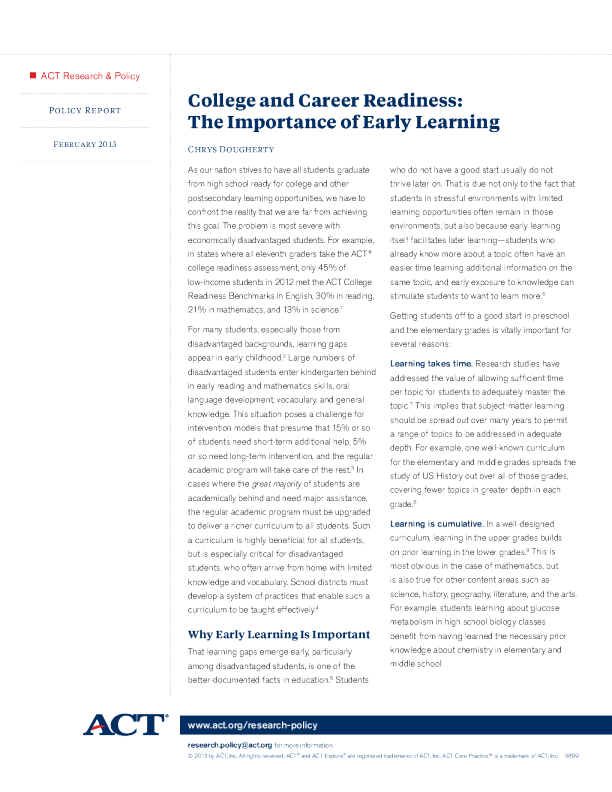College and Career Readiness: The Importance of Early Learning

你可能感兴趣

The Condition of College and Career Readiness 2013: Students from Low Income Families
ACT Research2014-07-09

The Condition of College and Career Readiness 2015�New Hampshire
ACT Research2015-07-29

The Condition of College and Career Readiness 2015�North Dakota
ACT Research2015-07-28

The Condition of College and Career Readiness 2015�West Virginia
ACT Research2015-07-28
